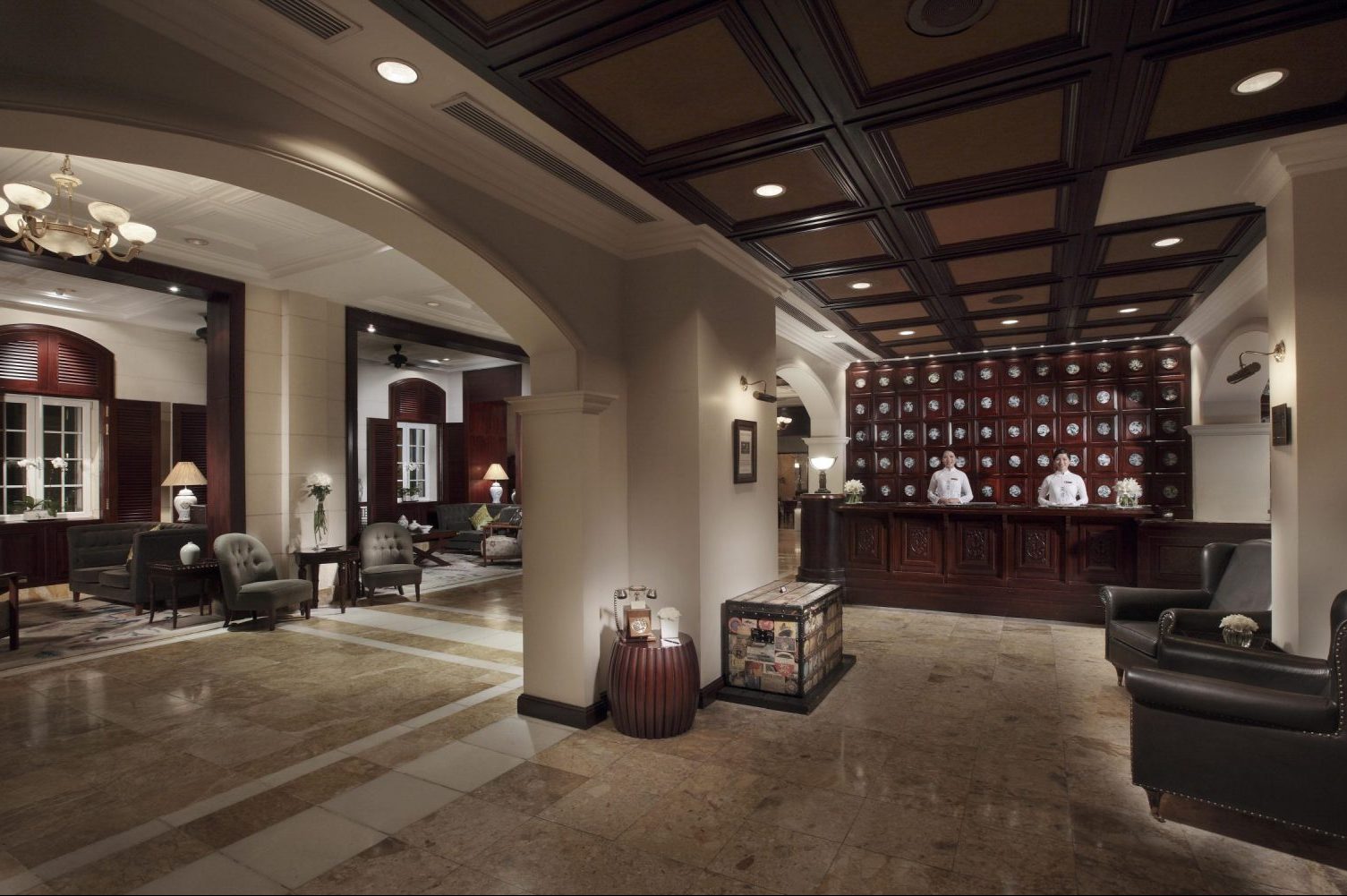Skift Take
In an age of Permanxiety, there exists an opportunity for old, classic, elegant hotels to be newly relevant. High-touch and anti-digital is newly cool (for some).
 Colin Nagy, head of strategy at Fred & Farid, a global advertising agency, writes this opinion column for Skift on hospitality, innovation, and business travel. “On Experience” dissects customer-centric experiences and innovation across hospitality, aviation, and beyond.
Colin Nagy, head of strategy at Fred & Farid, a global advertising agency, writes this opinion column for Skift on hospitality, innovation, and business travel. “On Experience” dissects customer-centric experiences and innovation across hospitality, aviation, and beyond.
Looking at the global travel landscape, Skift has coined the term Permanxiety, which we describe as “a near-constant state of anxiety that exists around the world.”
As Skift founder and CEO Rafat Ali wrote: “Travelers endure a barrage of worries about terrorism, security, neo-isolationism, racial tension, Trumpism, technology and its adverse role, the widening economic gap, culture wars, climate change, and other geopolitical and local issues.”
Hospitality can undoubtedly play a role in helping to soothe this ever-growing condition. There are many ways, but two of the most important are the ideas of refuge and empathy.
Refuge can mean many things, but I think one of the biggest and most relevant definitions is isolation from the digital barrage that has invaded every element of our lives. Properties that resist the urge to plaster every potential interface with more digital integration offer a kind of refuge.
As an example of that digital barrage, everything about the Public Hotel in New York is like a focus-grouped bouillabaisse of millennial “wants.” Some human touch points have been replaced with technology in the name of efficiency and keeping costs low.
There is no formal front desk. Guests check in on their own using a tablet or they can be assisted by a “public advisor.” Checking in includes activating your own room key at the iPad kiosk.
My instincts tell me the world wants, and is craving, exactly the opposite — hotels that are a refuge from too much technology. Travelers want a place where the human quotient needs to be upped, not eliminated.
My own travel preferences have shifted from the new, sleek, and minimal to the old, comfortable, and classic. Hotels that are confident and comfortable in their own skin. I bristle when I see an awkwardly placed interface in the room, or am prompted to download an app to read the morning papers. I’m seeking out the experiences that have been the same for 60 years, where a sense of space, place, and decorum still exists.
I argued in an earlier column that old, classic hotels have a new relevance in the world. They need to embrace this and run at it with new vigor. They should play up their historic attributes and sense of purpose and patina. They should be deliberately anti-technology and anti-social media.
These hotels also play a role of presenting a more simple, elegant time in the spaces and experiences they present to the world.
A Delightfully Analog Experience
A recent stay at the Raffles Grand Hotel in Angkor Wat in Cambodia was a delightfully analog experience. Everything was perfectly preserved in time, and a sense of occasion and elegance permeated the place. The room was controlled by sturdy switches and buttons, and it was obvious that an army of trend and tech consultants had not taken over. Service was gracious, empathetic, and anticipatory. You could squint and be in the 1940s.
The Metropole in Hanoi, Vietnam was a similar experience. The property is preserved in time, and while updated with necessary room refurbishments, the hotel beautifully preserves what is special and stewards its history appropriately. Credit goes to the parent company, Sofitel, for maintaining the magic and sustaining it beautifully.
Same goes for the Four Seasons Doha. It is a classic that knows its space and purpose in an increasingly crowded market. A chat with the team there told me that new designs for the renovation were rejected as being too modern and that the hotel is focused on being a deeply classic offering that is unencumbered by unnecessary digital whirrings and clickings.
Also, its stately bar counts as one of the most interesting places in the world right now, rife with interesting political meetings and intrigue amidst the blockade of Qatar.
Some Hotels Get It Wrong
The Park Hyatt Saigon, though a great property, got it wrong with its refurbishment; what was an elegant, timeless hotel had an awkward console glowing in the corner of the room, keeping you awake.
And, though not related to a property experience, the new Rosewood advertising campaign featuring petulant, pouty, rock and roll kids carousing in a luxurious suite with the butler chasing them with guitar cases strikes me as the most tone-deaf hospitality campaign in recent memory.
Laden with a stuttering EDM soundtrack, Rosewood manages to both alienate its current clientele, and also comes off as forced and contrived for the millennial generation it is trying to attract. Rosewood is an incredible hotel chain, and this made me want to avoid it because of missing the mark so badly.
There is nothing worse than an elegant brand trying to pander and add forced sex appeal to a new generation of hotel guests. The sexiest thing, after all, is a strong sense of self, something that the best classic hotels know.
Have a confidential tip for Skift? Get in touch
Tags: digital, millennials, On Experience, permanxiety
Photo credit: The lobby of Hotel Metropole Hanoi, which sticks with tradition over tech wizardry. Hotel Metropole Hanoi
